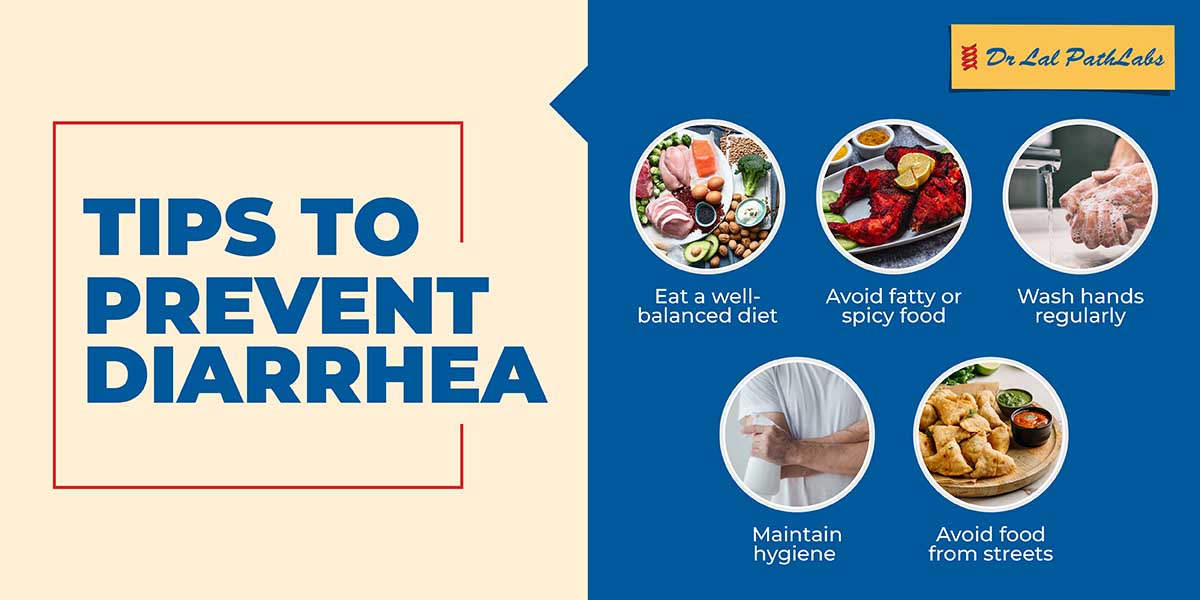Tips to Stay Safe from Diarrhoea During Monsoon
Introduction
The rainy season provides a delightful break from the summer heat with its cool and refreshing weather. It’s a pleasant time to enjoy, but we should also be cautious about illnesses that tend to occur more frequently during this period. Diarrhoea is one of these concerns, and we must be vigilant to stay healthy.
Monsoon and Diarrhoea: The Link
In the rainy season (monsoon), the chances of getting diarrhoea increase for different reasons.
- High humidity and rainfall can contaminate water sources, spreading harmful bacteria, viruses, and parasites that cause stomach infections.
- Bacteria and moulds thrive in the rainy season, making food more susceptible to spoilage, leading to food poisoning and diarrhoea if consumed.
- Diarrheal diseases can spread due to poor hygiene practices.
- Proper cleanliness and hygiene are crucial during this time to prevent illness.
- Drinking contaminated water is a significant risk factor for developing diarrhoea, so ensuring water safety is essential.
- Consuming improperly cooked or contaminated food increases the likelihood of diarrhoea and other stomach-related illnesses.
Exploring Different Types of Diarrhoea
There are three main types of diarrhoea:
- Acute Water Diarrhoea: This type happens when too much water goes into your bowels and can last a few hours or days.
- Motility-Related Diarrhoea: This type is linked to abdominal pain and cramping.
- Inflammatory Diarrhoea: includes abdominal pain, fever, and tenderness. It may also have intestinal bleeding, with blood in the stool, which might be invisible and detected only through testing.
Diarrhoea Symptoms
Common symptoms of diarrhoea caused by bacteria are:
- Abdominal cramps
- Abdominal pain
- Frequent watery bowel movements
- Nausea
- Vomiting
Some severe symptoms of diarrhoea include:
- Blood in bowel movements
- Pus in bowel movements
- Painful bowel movements
- Vomiting
- Reduced urination
- Fever
NOTE: The information here is about common diarrhoea symptoms. If you or someone you know has severe or ongoing symptoms, seek medical help.
Diarrhoea Duration: What to Expect
In children, diarrhoea usually lasts 5-7 days but rarely lasts more than two weeks. For adults, the condition usually improves within 2-4 days. However, in some cases, diarrhoea can last for more than a week. If someone has over ten loose, watery stools daily, it is a sign of severe diarrhoea. Moderate diarrhoea means having more than a few but less than ten watery stools daily.
Preventing Diarrhoea during Monsoon
To reduce the risk of diarrhoea during the monsoon season, follow these simple tips:
- Drink clean and purified water.
- Wash your hands thoroughly before eating.
- Avoid eating fried street foods and sliced fruits from street vendors, as they may use untreated water.
- Wash and cook vegetables and fruits carefully; consider using vinegar-infused water for washing.
- Avoid eating raw or uncooked food, seafood, and green leafy vegetables, as they can carry bacteria that cause diarrhoea.
- Include probiotic foods like yoghurt and buttermilk to support digestion and immune function.
- Minimize fried foods and refined sugar, which can cause gut issues and allow harmful bacteria to flourish.
- Ensure children are vaccinated against rotavirus, a contagious virus that causes severe diarrhoea in young and infants.
- Stay hydrated by drinking plenty of water and consider using an oral rehydration solution (ORS) to maintain electrolyte levels for better health.
Improving Digestion during the Monsoon Season
During the monsoon season, you can improve digestion by following these simple tips:
- Choose warm, freshly cooked meals and avoid raw or street foods.
- Use digestion-friendly spices like ginger, cumin, and coriander.
- Drink warm herbal teas like ginger or peppermint tea.
- Stay hydrated with lukewarm water and avoid too many chilled beverages.
- Eat mindfully, chew your food correctly, and have a balanced diet.
These steps will help boost digestion and keep you feeling healthy during the monsoon.














